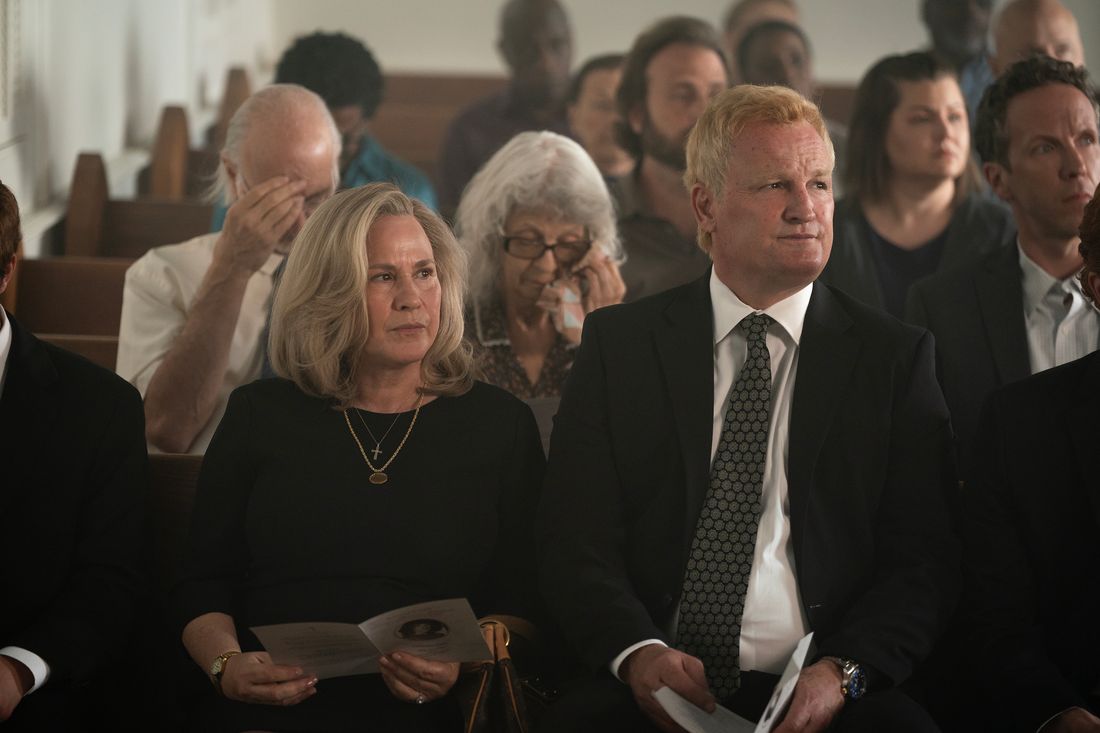
The documentary series Murdaugh: Death in the Family doesn’t delve into complex psychological explanations or try out unusual storytelling techniques, unlike many modern true crime shows. It simply presents the facts: Alex Murdaugh was accused of murdering his wife and son, and evidence suggests he did. The series makes it clear he showed no remorse for the killings. Unlike some other true crime stories, there’s no attempt to explain Murdaugh’s actions through a difficult past or trauma – the motive appears to be purely greed. If you’re looking for a story with a more complex psychological profile, you might prefer something like Monster: The Ed Gein Story.
I have to admit, I came into this story a little late – I hadn’t listened to all the Murdaugh Murders Podcast episodes, watched the Netflix series, or followed all the Dateline, 48 Hours, and 20/20 coverage. But Death in the Family quickly filled me in. It turns out Alex Murdaugh came from a prominent South Carolina family with a dark past, building his fortune through settlements and some shady dealings. The series lays out everything – how he was ultimately convicted of murdering his wife, Maggie, and son, Paul. What I really appreciated about this Hulu miniseries, from Erin Lee Carr and Michael D. Fuller, is that it doesn’t try to shock you with twists. It’s a straightforward, unsettling look at a man with no moral compass, and it’s all the more impactful for it.
The series Death in the Family begins with a shocking scene: the bodies of Maggie and Paul are discovered, and Alex desperately claims he wasn’t involved. The story then flashes back to 2019, unraveling the events that led to their deaths. We see how a sense of doom hangs over the entire family, with each member facing misfortune or harboring secrets. Alex appears as a friendly, outgoing man, but Jason Clarke skillfully portrays his darker side – infidelity, substance abuse, and stealing from his clients. He even uses stolen money to fund a lavish vacation while falsely assuring his clients their insurance claims are pending. Maggie is wary of Alex, a feeling Patricia Arquette expertly conveys through subtle expressions, and Paul is jealous of his brother Buster’s academic success. Buster, in turn, feels resentful towards Paul for his mistakes and their parents’ overprotectiveness.
As a true crime obsessive, I was completely gripped by the Murdaugh case, and this documentary really dives into the chaos that erupted after Paul’s boat crash, which tragically killed a young woman. The family immediately imploded, constantly fighting about how the media – especially journalists Mandy Matney and Liz Farrell, who later created the Murdaugh Murders Podcast – were covering everything. The constant reporting on the Murdaughs’ influence just fueled their feeling of being unfairly targeted, and the film doesn’t offer them any sympathy for it. There’s one scene with Alex, looking utterly pathetic – face covered in food, practically melting into the couch – trying to get Maggie’s attention, and it’s just dripping with contempt for his desperate need to be the center of everything. Eddie Clarke’s performance is incredible; he physically embodies Alex’s shifting between intimidating and slovenly, and it’s really powerful.
The characters in the series aren’t particularly complex, and the dialogue can sometimes feel overly direct – like when Alex casually says, “It’s only cheating if you get caught.” However, this simplicity actually reinforces the show’s focus on presenting the facts without unnecessary embellishment. The series also avoids portraying Maggie and Paul as entirely innocent victims. While Alex exploited those around him, Maggie also took advantage of Gloria Satterfield, the family’s housekeeper, by underpaying her and failing to provide promised medical care. A silent scene showing Gloria cleaning the Murdaughs’ large home, doing laundry, and taking out the trash before returning to her modest trailer with her sons is powerfully sad, especially knowing how she later died. Furthermore, Paul is shown as directly responsible for the events of the night on the speedboat, aggressively silencing his friends. The series doesn’t imply that Maggie and Paul deserved their fates, but it doesn’t shy away from showing how the Murdaugh family was deeply flawed and dragged others down with them as they spiraled out of control.
One of the things that makes Death in the Family stand out is that it doesn’t overexplain Alex’s behavior or try to excuse it based on his past. This gives it a classic, almost retro feel, like an old made-for-TV movie. In a time when everything is analyzed and overthought, this focused approach is surprisingly welcome. The series suggests that constantly searching for deeper reasons behind violence can actually hide the simple truth: people can be cruel, thoughtless, and even intentionally unkind. Cruelty can be learned and can become commonplace, and not every terrible act comes from a complex or interesting place. Sometimes, people are just awful.
Read More
- Exclusive: First Look At PAW Patrol: The Dino Movie Toys
- Hell Let Loose: Vietnam Gameplay Trailer Released
- LINK PREDICTION. LINK cryptocurrency
- Ragnarok X Next Generation Class Tier List (January 2026)
- Decoding Cause and Effect: AI Predicts Traffic with Human-Like Reasoning
- Will there be a Wicked 3? Wicked for Good stars have conflicting opinions
- The 1 Scene That Haunts Game of Thrones 6 Years Later Isn’t What You Think
- My Favorite Coen Brothers Movie Is Probably Their Most Overlooked, And It’s The Only One That Has Won The Palme d’Or!
- Hyrule Warriors: Age of Imprisonment version 1.0.2 is now available bringing in new challenges, quests, & more
- 27 Battlefield Redsec Tips to Win Your Next Match
2025-10-24 15:55